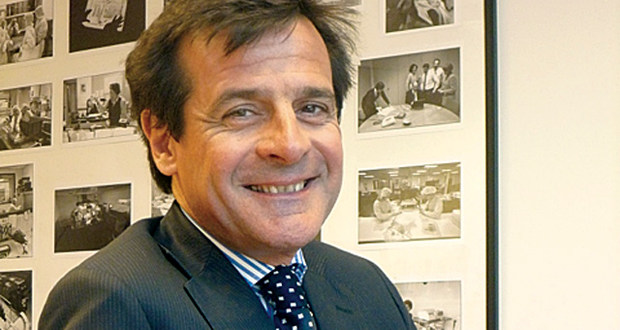
Andrea Rappagliosi: Challenges and answers: HTA in the economic crisis
During the last thirty years, healthcare expenditure has been growing much more rapidly than GDP in OECD countries, causing increasing concerns about the long-term sustainability of current trends. As we have seen with the global impact of the financial crisis, economic realities are moving faster than political ones.
The standards of healthcare that European citizens are provided with today risk becoming economically unsustainable, if the efficiency of healthcare systems is not factored in when assessing the value of prevention and treatment of diseases. Against this background, we need to look in more detail at the determinants of healthcare expenditure in the countries of Europe, explicitly taking into account aspects like the role of income, the effects of an ageing population, life habits, technological progress, and institutional and budgetary variables.
When developing products and solutions for European patients today, the research-based pharmaceutical industry is responding to evi-dence–based requirements put in place by regulatory agencies which request proof of efficacy, quality and safety and 30+ Health Technology Assessment (HTA) agencies across Europe, which want proof of relative effectiveness. In the area of prevention, the vaccine industry has to provide dedicated evidence to public authorities, which in turn make recommendations prior to any public prevention programme. There is a potential for unnecessary duplication between these different requirements, as they are actually sourced from the same sets of data.
The need to secure timely, equitable and sustainable patient/citizen access to healthcare services has led to a growth in collaboration between HTA agencies recently, and this has been strongly supported by the European Commission. Industry believes there is room for this initiative, whilst simultaneously keeping regulatory and HTA processes separated and keeping pricing and reimbursement decisions fully at the national level.
Of particular note is the collaboration between HTA agencies, which is supported by the European Commission and will be formalised in a permanent network as of next year. The current network (EUnetHTA) is working on developing methodological guidance for relative effectiveness assessment. Industry is supporting this approach, and is contributing to this discussion in order to feed in experience and know-how. Moving forward, industry would certainly favour increased collaboration between the regulatory world and the European collaboration on HTA, as this would ensure that evidence-based requirements receive the best scientific attention and are aligned across the range of decisionmakers, allowing for an ongoing dialogue between the parties. What is crucial is that consultation with stakeholders, including those in industry, is warranted.
Today, the key challenge for governments is designing pluralistic systems of healthcare delivery and financing. In this area, a well-balanced mix of public and private financing would put market forces to work promoting investment and innovation, without imposing unsustainable burdens on public budgets or denying prevention and care to the disadvantaged population.
Andrea Rappagliosi
Andrea Rappagliosi is Vice President Market Access, Vaccine Advocacy & Medical Affairs at Sanofi Pasteur MSD, the only company in Europe totally dedicated to vaccines. During his career in both the public and the private sectors, he has focused on access issues that impact patients and healthcare systems in Europe. Rappagliosi is also VP of the European Vaccine Manufacturers Group and co-chair of the EFPIA HTA Task Force.




